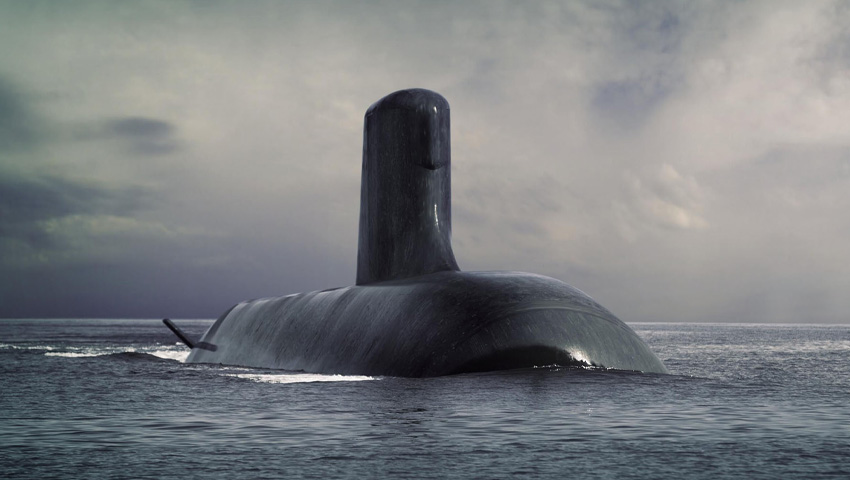The prime has reacted to the Commonwealth government’s decision to scrap the next phase of its $90 billion SEA 1000 contract.
Earlier this morning, Prime Minister Scott Morrison, US President Joe Biden, and UK Prime Minister Boris Johnson jointly announced a new multinational nuclear submarine plan to deliver next-generation undersea warfare capability to the Royal Australian Navy.
The technology sharing and support agreement forms part of a new “trilateral security partnership”, dubbed AUKUS.
As part of the AUKUS alliance, nuclear-powered submarines would be built in Adelaide, leveraging skills and resources provided by stakeholders in the US and UK.
Further details regarding the fleet’s capability, project logistics, and the delivery timeline are to be fleshed out over the next 18 months.
The new plan scuppers France-based Naval Group’s multi-decade contract to deliver 12 diesel-powered Attack Class submarines to replace the ageing Collins Class fleet as part of its $90 billion SEA 1000 contract.
A company spokesperson acknowledged the announcement, confirming the Commonwealth's decision not to proceed with the next phase of the program.
“This is a major disappointment for Naval Group, which was offering Australia a regionally superior conventional submarine with exceptional performances,” the spokesperson told Defence Connect.
“Naval Group was also offering Australia a sovereign submarine capability making unrivalled commitments in terms of technology transfer, jobs and local content.
“For five years, Naval Group teams, both in France and in Australia, as well as our partners, have given their best and Naval Group has delivered on all its commitments.”
The prime’s Attack Class project had been marred with controversy, with stakeholders critical of perceived cost blow-outs, questions over AIC commitments, and the 2054 date for final operating capability.
Naval Group sought to ease stakeholder concern by revamping its leadership team and bolstering engagement with local industry.
In May, Naval Group appointed Lilian Brayle as the permanent replacement for Jean-Michel Billig as executive vice president of its Future Submarines program.
This followed the appointment of former managing director of Rio Tinto, David Peever, as its new chair.
Peever joined Chris Jenkins — chief executive of Thales Australia and national president of the Australian Industry Group — and Kim Gillis — former deputy secretary of the Capability, Acquisitions and Sustainment Group (CASG) — who were expected to leverage their experience in the sector to enhance the prime’s links with local industry.
In a further effort to assure stakeholders of its commitment to fulfilling its contractual obligations, Naval Group Australia released a package valued at over $1 billion, aimed at encouraging local firms to join its supply chain.
However, in announcing the government's new submarines strategy, Prime Minister Morrison stressed that the overhaul was not an indictment on Naval Group's management of the Attack Class program.
"This [new strategy] in no way reflects, in any way, shape, or form, on the Attack Class submarine, Naval Group, and the commitment of the French government and indeed President [Emmanuel] Macron personally," he said.
"They have been good partners [but] this is about our strategic interests, our strategic capability requirements, and a changed strategic environment."
Naval Group representatives are now expected to engaged with Commonwealth government officials over the coming days for an “analysis of the consequences of this sovereign Australian decision”.
[Related: Australia goes nuclear – Australia to obtain nuclear submarines as part of new global alliance]
[Join the Defence Connect Messaging Service: https://www.defenceconnect.com.au/live-updates]
Charbel Kadib
News Editor – Defence and Security, Momentum Media
Prior to joining the defence and aerospace team in 2020, Charbel was news editor of The Adviser and Mortgage Business, where he covered developments in the banking and financial services sector for three years. Charbel has a keen interest in geopolitics and international relations, graduating from the University of Notre Dame with a double major in politics and journalism. Charbel has also completed internships with The Australian Department of Communications and the Arts and public relations agency Fifty Acres.









